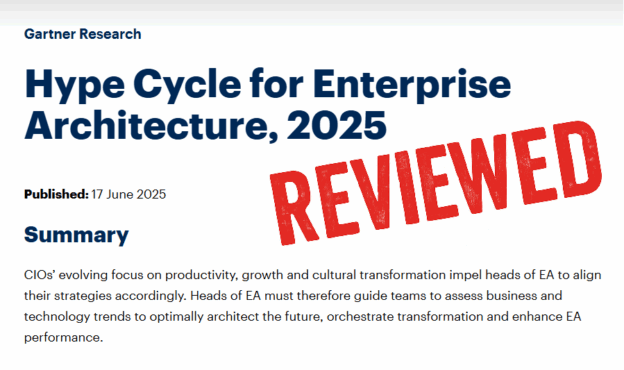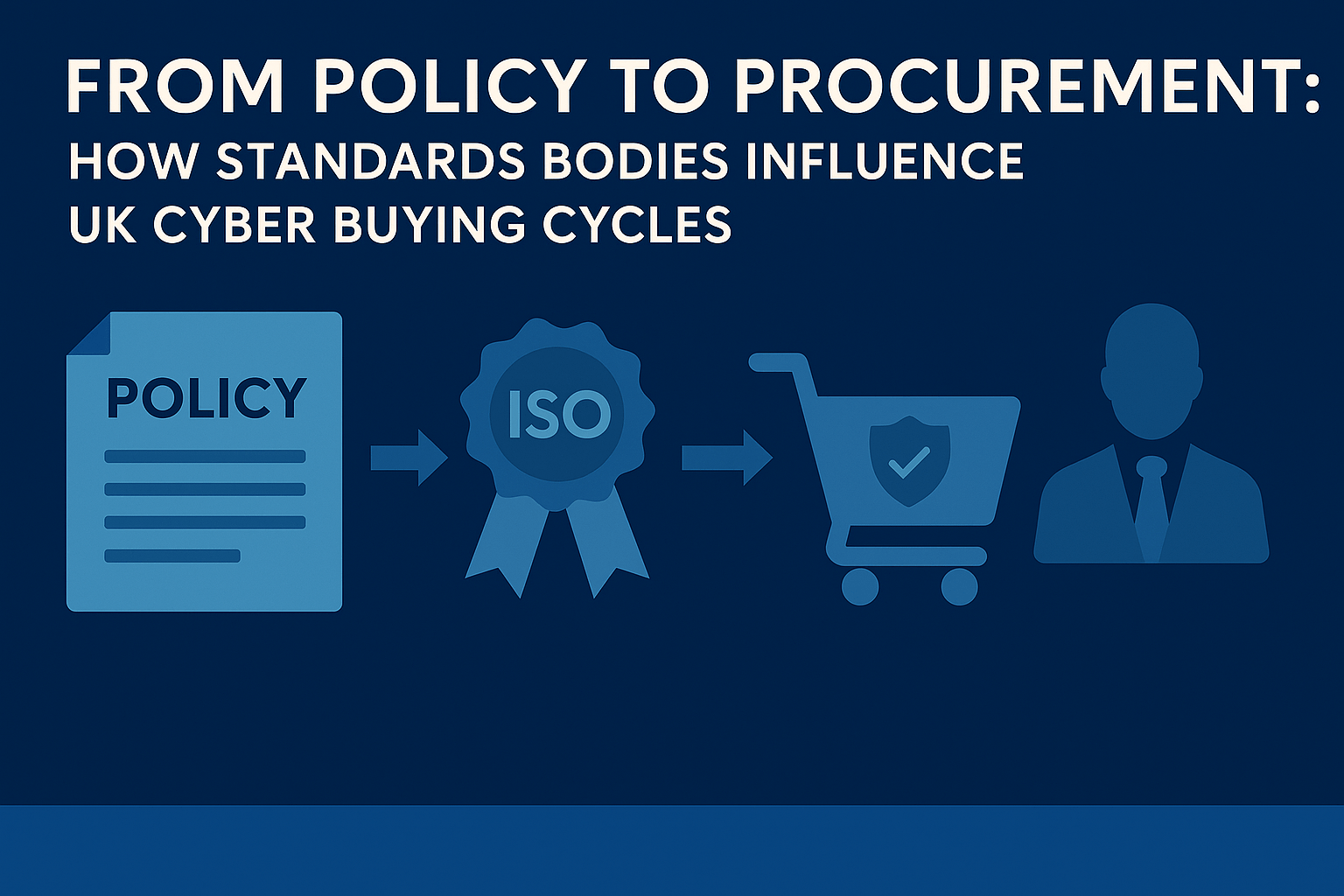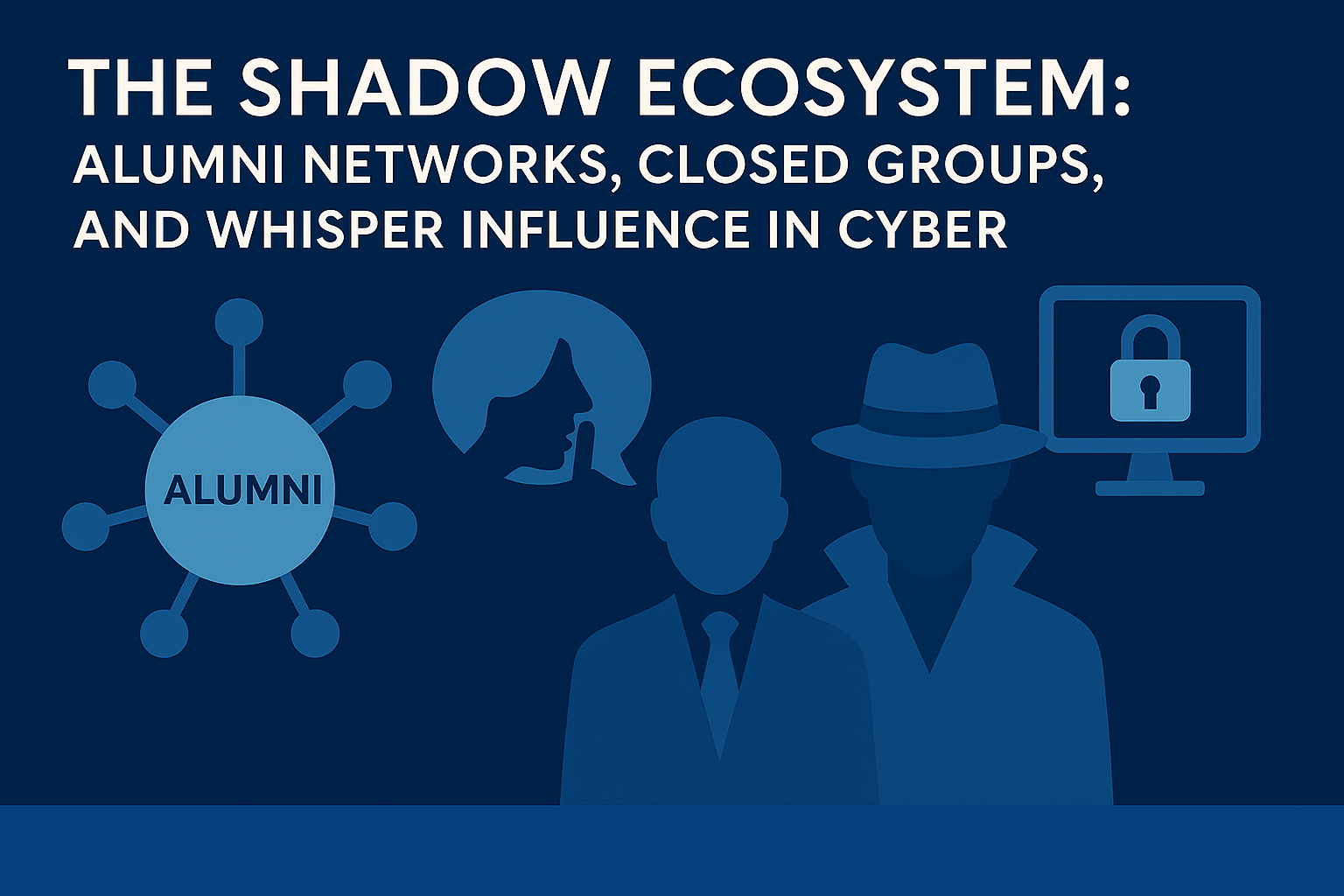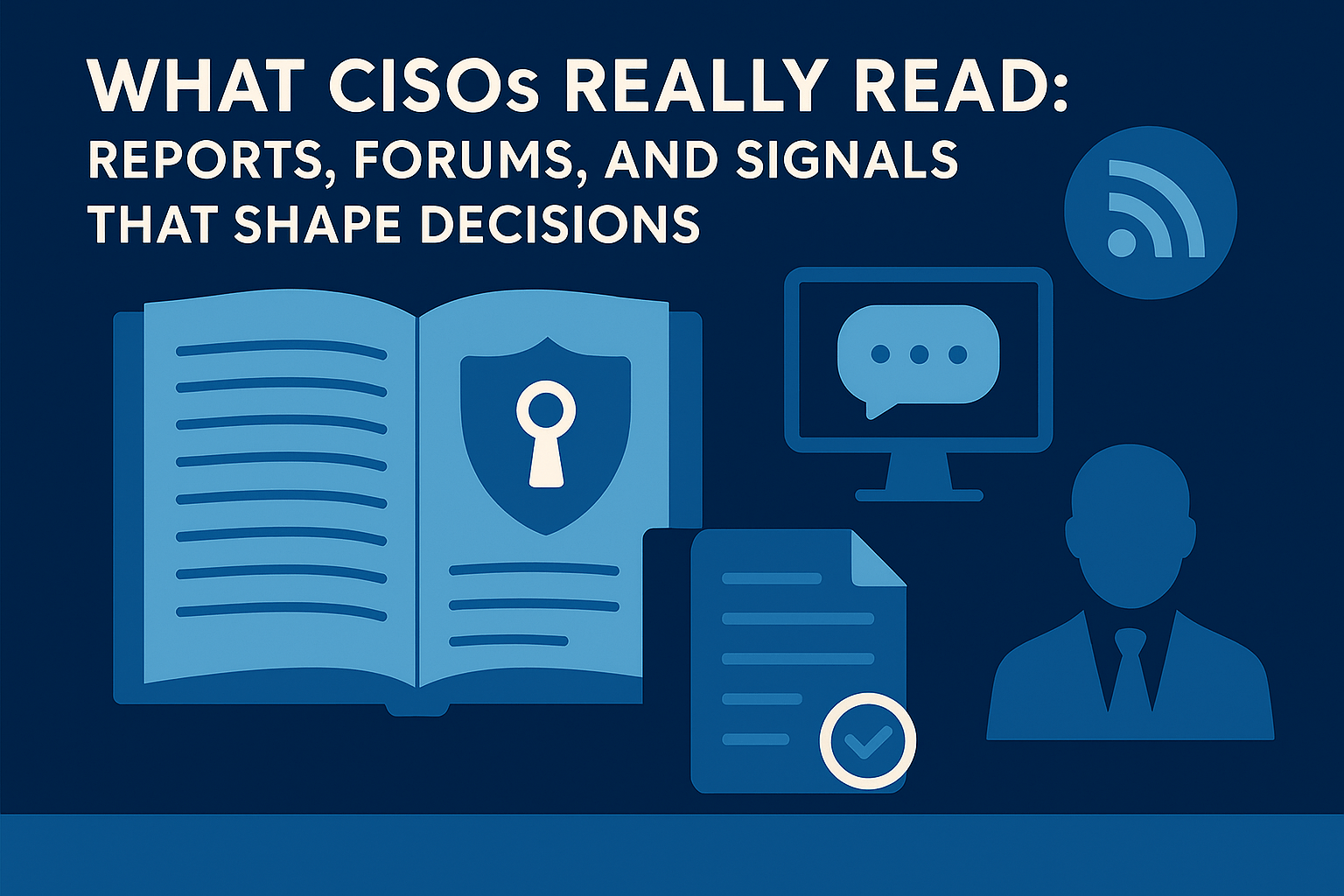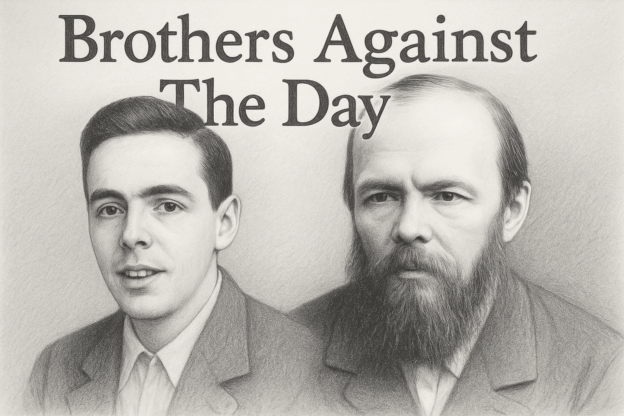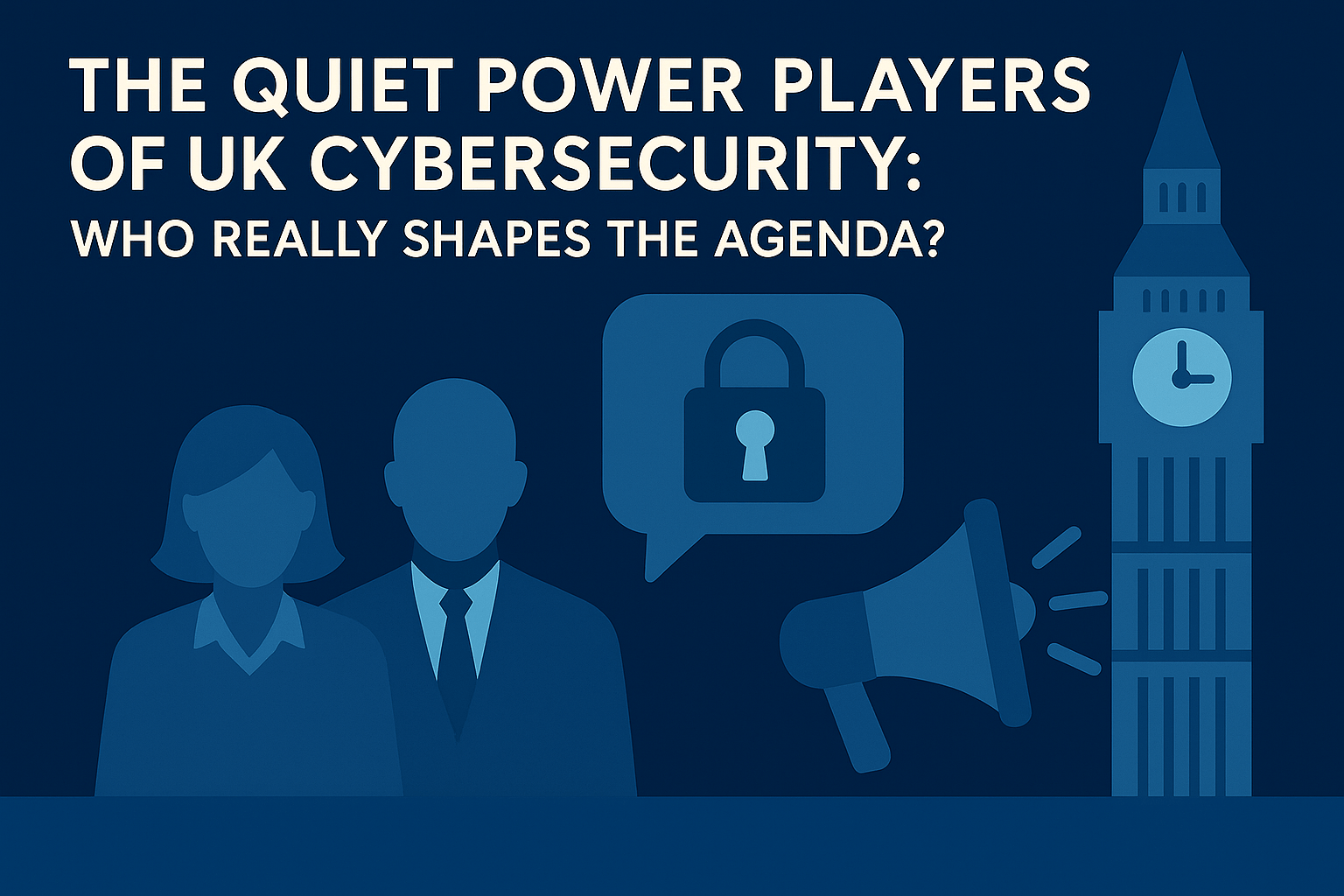Gartner’s 2025 Hype Cycle for Enterprise Architecture catalogues trends and buzzwords but fails to grapple with core challenges. It overstates AI as the answer to everything, recycles old concepts under new names, and sidesteps long-standing fundamentals like bi-modal IT, plumbing vs business enablement, and the EA reputation problem. A better hype cycle would cut the noise, confront EA’s accountability gap, and ground guidance in practical playbooks, cost discipline, and measurable business outcomes.
Continue reading